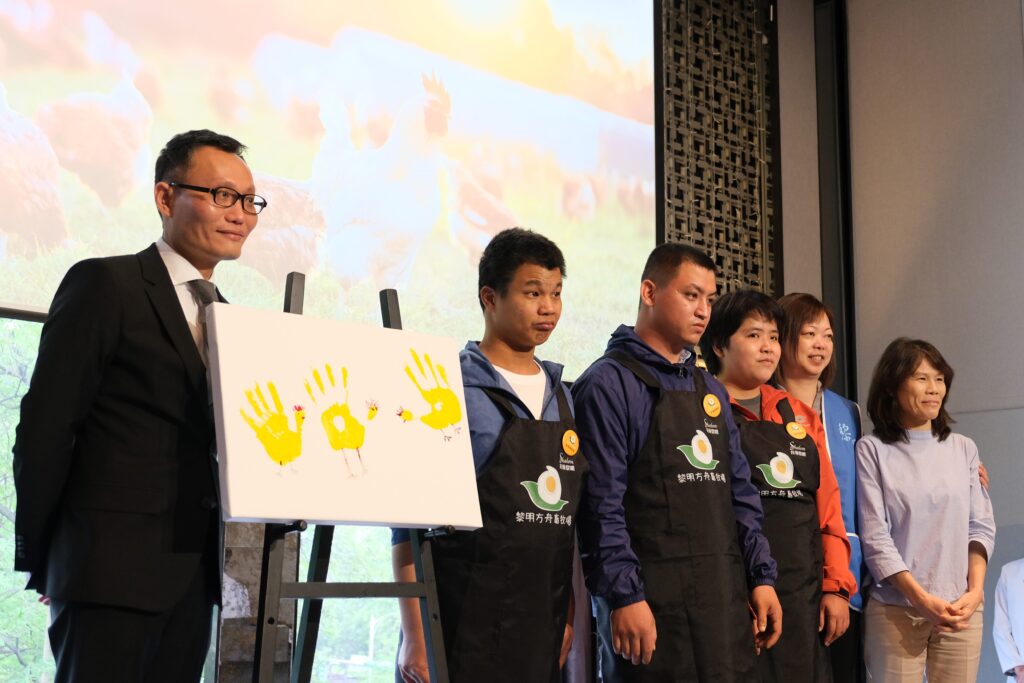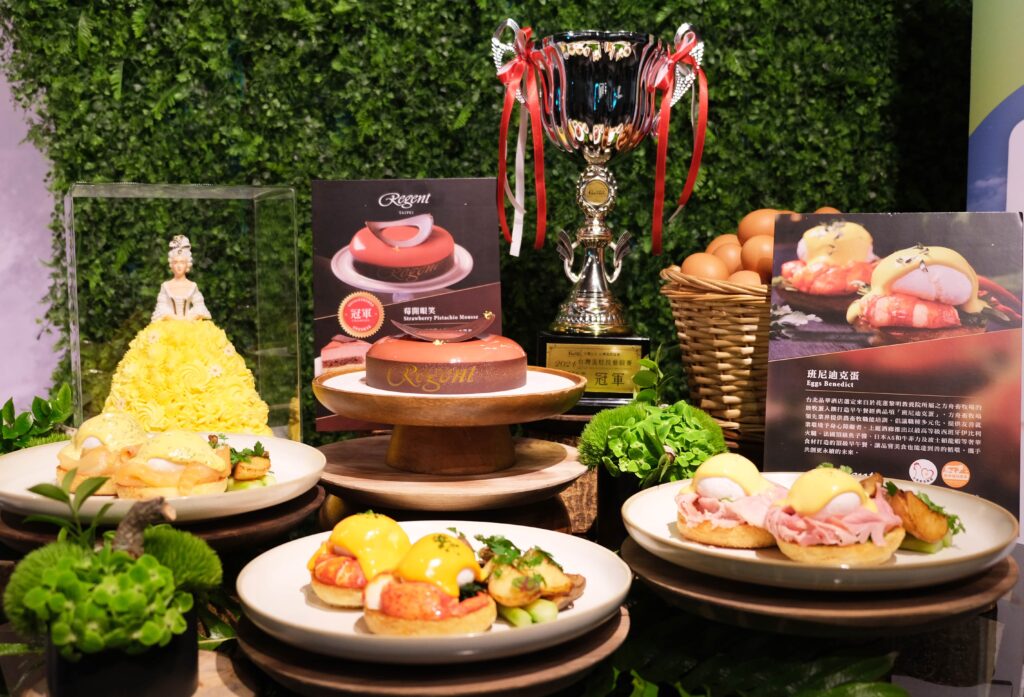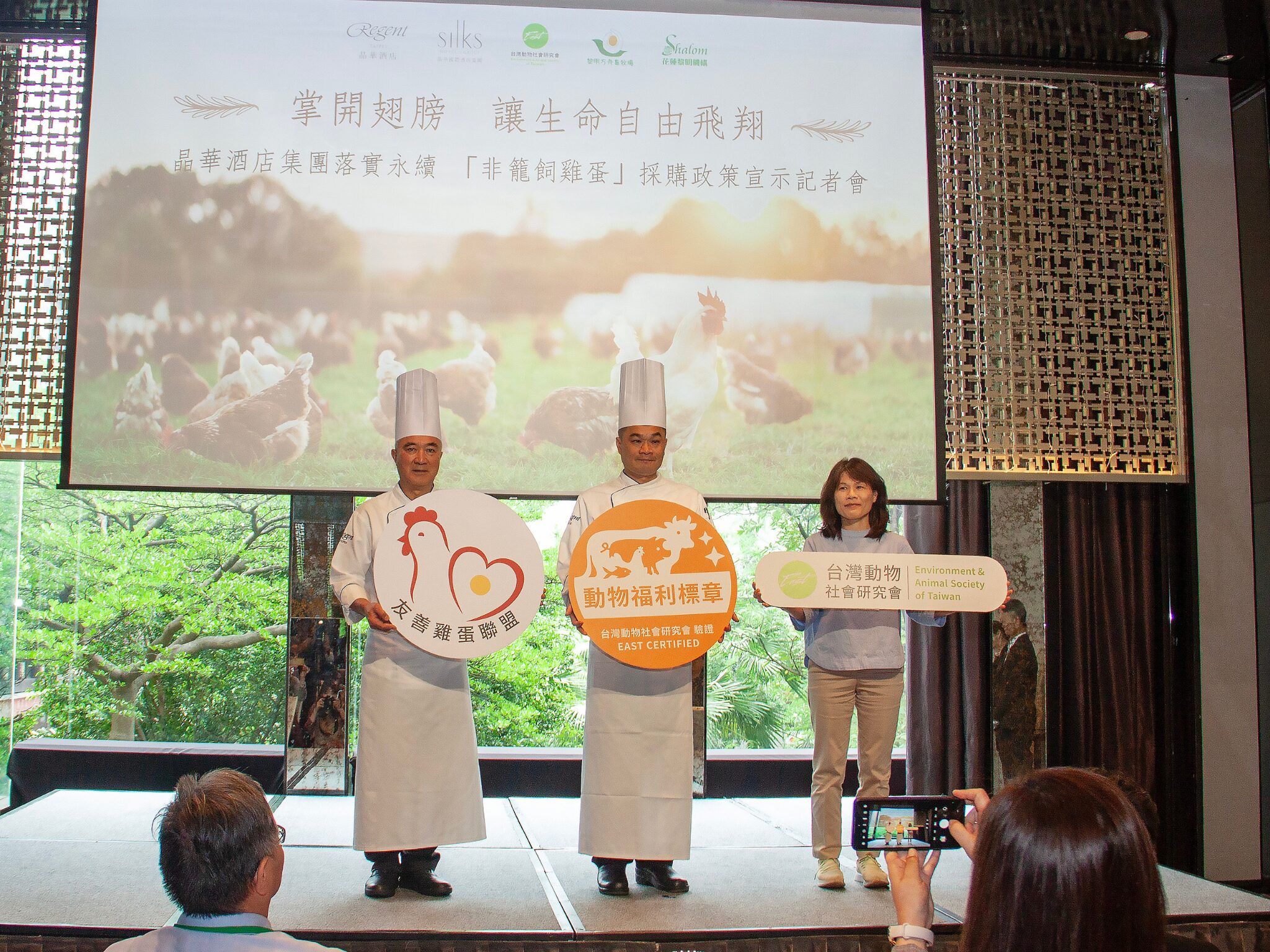4 Mins Read
Taiwanese hospitality chain Silks Hotel Group has pledged to transition to cage-free eggs across all its sites by 2030, following a partnership with the Environment & Animal Society of Taiwan.
Silks Hotel Group, the largest publicly-listed hotel group in Taiwan, has introduced a 100% cage-free egg sourcing policy, which is set to come into effect at all its locations by 2030.
The announcement comes as part of a partnership with animal rights charity the Environment & Animal Society of Taiwan (EAST) and the Taiwan Mennonite New Dawn Educare Center for people with disabilities, which is centred on promoting sustainable practices in the country’s agriculture sector.
As part of Silks Hotel Group’s corporate social responsibility efforts, all restaurants in the luxury chain Regent Taipei will transition to using only cage-free eggs by the end of 2026, with implementation beginning this year.
The decision to do so was born out of a chance meeting between Silks Hotel Group COO Simon Wu and EAST deputy CEO Chen Yumin in December, where they discussed sustainability-related topics. Wu then assigned sustainability director Sharon Liao to carry the conversation forward, which resulted in the cage-free policy.
Why Silks Hotel Group decided to go cage-free

In Taiwan, 70% of egg-laying hens are confined in battery cages throughout their lives. This prevents them from exhibiting their natural behaviours, leading to physical and mental health issues. Keeping hens in these cages subjects them to respiratory, digestive, immune system and skeletal problems – and, to tackle these issues and avoid economic losses, prophylactic antibiotics are routinely administered in their feed.
This means hens struggle to adapt to climatic changes and disease threats, leading to mass culling due to illness and weakness. That puts Taiwan at risk of prolonged egg shortages, as well as the spread of zoonotic diseases that affect both humans and animals. Avian flu is an ever-growing problem globally, recently being detected in cattle in the US too.
This is why Regent Taipei began using free-range eggs from a nearby farm where hens are cared for by employees living with disabilities. The hotel plans to implement this next at its Gallery Lounge and the Robin’s Steakhouse and Teppanyaki, and estimates total annual consumption of 52,000 kgs across all its restaurants.
But does Silks Hotel Group have transparency and certification checks in place? “As a first step, Regent Taipei’s specialty restaurants are sourcing eggs from farms that have achieved EAST Certified certification,” Wu told Green Queen.
“This means that the farms that supply our eggs are subject to strict annual and unannounced audits by EAST to ensure they adhere to comprehensive, evidence-based animal welfare standards and we can be confident that animals in their care are able to exhibit their natural behaviours,” he added.
Calls for better cage-free policies in Taiwan

Cage-free eggs have been a topic of discussion in the Taiwanese government ever since a report by the Open Wing Alliance (OWA) in February, which evaluated policy frameworks around this subject. Of the 17 Asia-Pacific countries analysed, Taiwan ranked sixth, scoring 29 out of a possible 140 points on three pillars: the use of cages, policy frameworks, and welfare standards.
It prompted a group of lawmakers from across party lines to call for accelerated efforts to phase out battery cages and build better environments for egg-laying hens, in a press conference co-hosted with EAST, which is a member of the OWA.
The report said Taiwan met six of 11 established on-farm welfare criteria, and is the only East Asian country with both publicly documented enforcement procedures and financial penalties for violators. Its labelling requirements have legal force, with fines of between NT$30,000 and NT$3M ($950-$95,000). And, in 2019, the nation’s Food and Drug Administration launched a special operation to investigate the coherence between egg labelling and official laying hen welfare standards.
“We applaud Silks Hotel Group for making a commitment to eliminate the cruel confinement of egg-laying hens in its supply chains,” Noa Limpoco, senior Asia lead at the OWA, told Green Queen. “As a leading hotel management company in Asia and the most profitable group on the Taiwan Stock Exchange, it is encouraging to see Silks Hotel Group align with consumer and investor expectations by embracing ethical supply chain practices and ESG principles.”
Upon announcing the cage-free policy, Silks Hotel Group emphasised its commitment to sustainability and the UN’s Sustainable Development Goals. A key tenet of such aims is a shift away from animal products altogether, considering that livestock farming alone emits up to 20% of the world’s greenhouse gases.
“As our hotels are hosting international travellers from all over the world, we will still need to prepare food with great varieties to cater [to] our guests,” Wu said when asked if the hotel operator had any plans to cut back on meat or dairy in its offerings.
“However, at the same time, we will be offering more diverse vegetarian cuisines as well as increasing our percentage of using animal-friendly food sources,” he added. For example, in February 2023, the hotel company partnered with Michelin Green Star eatery Little Tree Food to launch a Plant-Based Cuisine venture, with the aim of providing guests with “even more healthy and sustainable meal options”.




